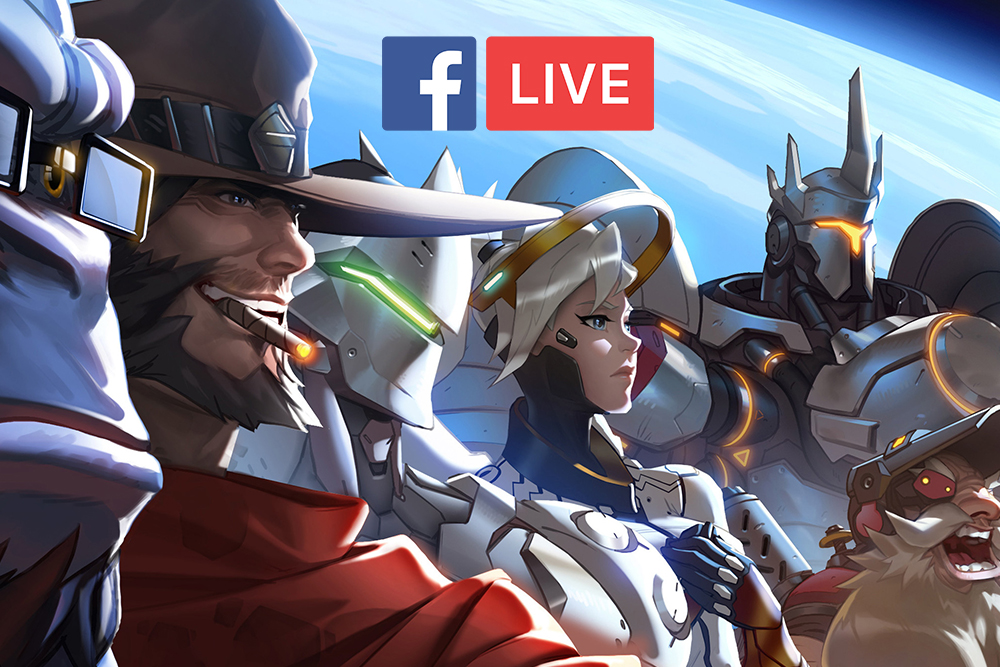Facebook may be the top social network in the world, but it wants to dominate the game video content (GVC) market, as well. Strategic partnerships have the network poised to draw eyes away from YouTube and Twitch, although it won’t be easy.
Facebook has already established itself as a place for gaming, at least in the casual market. The company reports that across web and mobile, an average of 445 million people play Facebook-connected games every month, and over 250 million people play directly on the platform itself.
Now that focus is shifting dramatically toward the competitive world of esports. PlayerUnknown’s Battlegrounds (PUBG) developer Bluehole has partnered with Facebook to host a weekly, three-hour livestream show. The Bluehole team will showcase exclusive in-game content on the show and feature both community members and top online creators.
“This new initiative with Facebook will bring our passionate fan base closer to our development team,” Chang Han Kim, vice president and executive producer of Bluehole, said in a statement. “Livestreaming has been very important to the growth of PlayerUnknown’s Battlegrounds. We believe that featuring PUBG livestreamers on Facebook further strengthens our commitment to the community while extending the reach of our game to a global audience.”
Activision Blizzard partnered with the social media giant, allowing users to broadcast live gameplay from PC, mobile and console games directly to Facebook. Additionally, the rights to broadcast the collegiate Heroes of the Dorm tournament (featuring Heroes of the Storm) switched from ESPN to Facebook this year, and Facebook penned a deal with ESL to broadcast over 5,500 hours of esports content.
Why does Facebook want to dominate the video market, especially in gaming? According to research from IHS Markit, esports is expected to become a $1 billion advertising industry by 2021, with video driving a majority of revenues along with influencer marketing and sponsorship. GVC alone is expected to generate $4.6 billion in 2017, according to SuperData.
Last year, Facebook paid as much as $220,000 for top YouTube stars to produce exclusive content for Facebook Live. The initiative certainly helped get cameras rolling, as live broadcasts now make up 20 percent of Facebook video.
As with all marketing, a larger audience doesn’t necessarily equate to a quality one. Facebook may boast two billion monthly active users, but that doesn’t mean those two billion are video game fans. Over 20 million how-to gaming videos have been uploaded to YouTube, and 56 percent of gamers on the site say they go to YouTube to connect with their gaming communities.
Twitch may not have the massive user base of Facebook, but its audience is even more niche than YouTube when it comes to GVC. Twitch earns 37 percent of GVC revenue despite only having 16 percent of the viewers, according to SuperData, making it an attractive platform for esports leagues and marketers alike. This concentrated outlet for engaged gaming audiences earned Twitch an exclusive worldwide partnership with Blizzard that includes third-party livestreaming rights to select Blizzard esports content through 2018.
Facebook may have a way to go before it outpaces its top competitors, but that won’t stop the social network from trying, especially in the lucrative esports market.
“Esports is an exciting space and continues to be a growing priority for us,” Dan Reed, Facebook’s head of global sports partnerships said during its Digital Content NewFronts presentation. “With over [two billion] people on the platform and a growing suite of VOD and livestreaming products that partners can use to increase engagement, Facebook is uniquely positioned to help eSports fans connect around exciting moments and great esports content.”

